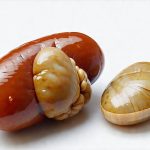Gallbladder disease during pregnancy can be a particularly worrying experience for expectant mothers. It’s not uncommon – hormonal changes and the physical stress of pregnancy significantly increase the risk of developing gallbladder problems like gallstones. These issues can range from mild discomfort to severe, debilitating pain, impacting both maternal well-being and potentially, fetal health if left unmanaged. Understanding what’s happening within your body, recognizing potential symptoms, and knowing how to navigate treatment options with your healthcare provider are crucial steps in ensuring a healthy pregnancy journey. This article aims to provide comprehensive information on managing gallbladder disease during this unique time, focusing on practical tips and considerations for expectant mothers.
Pregnancy itself alters the physiology of the biliary system – the network encompassing the gallbladder, bile ducts, liver, and pancreas. Estrogen levels rise dramatically during pregnancy, which slows down gallbladder emptying. This creates a more concentrated environment for bile to form stones. Furthermore, the growing uterus puts physical pressure on the gallbladder, potentially hindering its function. These combined factors make pregnant women significantly more susceptible to developing gallstones and experiencing related symptoms like abdominal pain, nausea, vomiting, and even jaundice. It’s vital to remember that every woman’s experience is different, and early detection alongside consistent communication with your obstetrician and gastroenterologist are key to a positive outcome.
Understanding Gallbladder Disease in Pregnancy
Gallbladder disease isn’t one single condition; it encompasses several issues affecting the gallbladder and its function. The most frequent issue during pregnancy is cholelithiasis, or gallstones – hard deposits that form inside the gallbladder. These stones can block bile ducts, leading to inflammation (cholecystitis) and intense pain. Sometimes, gallstones are asymptomatic, meaning they cause no noticeable symptoms. However, even silent stones can pose risks if they obstruct a bile duct, potentially causing pancreatitis or infection. It’s important to understand that the timing of gallbladder issues during pregnancy often correlates with hormonal shifts, frequently appearing in the second or third trimester, although it can occur at any stage.
The diagnostic process usually begins with a thorough medical history and physical examination. Your doctor will inquire about your symptoms, including their severity, duration, and location. Imaging tests are crucial for confirmation. Ultrasound is often the first line of investigation, as it’s safe for both mother and baby and can effectively visualize gallstones. Other imaging options like MRI or CT scans may be considered in certain situations, but they are generally avoided during pregnancy due to radiation exposure unless absolutely necessary. Blood tests can also help assess liver function and identify signs of inflammation or infection associated with gallbladder issues.
Crucially, self-diagnosis is never recommended. Symptoms of gallbladder disease can mimic other pregnancy-related discomforts, making accurate diagnosis essential. A healthcare professional will be able to differentiate between typical pregnancy symptoms and those indicative of a gallbladder problem. Prompt and correct diagnosis allows for appropriate management strategies tailored to your individual needs and the stage of your pregnancy.
Dietary and Lifestyle Modifications
Diet plays a significant role in managing gallbladder disease during pregnancy, though it’s not a cure. The goal is to minimize gallbladder stimulation while ensuring adequate nutritional intake for both mother and baby. A low-fat diet is generally recommended. This doesn’t mean eliminating fat entirely – healthy fats are essential for fetal development. Instead, focus on reducing your overall fat intake and avoiding fried foods, processed snacks, and excessive amounts of fatty meats. Small, frequent meals can also be helpful as they reduce the workload on the gallbladder.
Hydration is equally important. Drinking plenty of water helps keep bile fluid, making it easier for the gallbladder to function and potentially preventing stone formation. Aim for at least eight glasses of water daily. Avoid carbonated beverages and sugary drinks, which can exacerbate digestive issues. Regular, gentle exercise – as approved by your doctor – can also aid digestion and overall well-being. Remember that sudden strenuous activity is not advisable during pregnancy, especially when dealing with gallbladder problems.
Managing Pain and Discomfort
Pain management during pregnancy requires a delicate approach due to the limitations on medication choices. Over-the-counter pain relievers like ibuprofen or naproxen are generally not recommended during pregnancy, particularly in later stages. Your doctor may suggest acetaminophen as a safer alternative for mild to moderate pain, but always consult them before taking any medication, even over-the-counter options. Non-pharmacological methods of pain relief can also be incredibly effective.
- Applying a warm compress to the abdomen can provide soothing relief.
- Practicing relaxation techniques like deep breathing exercises or meditation may help manage discomfort and reduce stress.
- Rest is paramount. Allowing your body to rest and recover is crucial for managing symptoms.
- Consider seeking support from family and friends to assist with daily tasks, reducing strain and minimizing stress.
If the pain becomes severe or unbearable, immediate medical attention is necessary. This could indicate a more serious complication like cholecystitis or pancreatitis requiring intervention. It’s also essential to report any signs of jaundice (yellowing of the skin or eyes) or fever to your healthcare provider immediately.
Understanding Treatment Options
Treatment for gallbladder disease during pregnancy varies depending on the severity of the condition and the stage of gestation. For mild cases with minimal symptoms, conservative management – dietary modifications and pain control as described above – may be sufficient. However, more severe cases often require medical intervention. Antibiotics may be prescribed if an infection is present. In some instances, endoscopic retrograde cholangiopancreatography (ERCP) might be considered to remove stones blocking the bile duct, but this procedure carries risks and is generally reserved for serious complications.
Cholecystectomy – surgical removal of the gallbladder – is typically avoided during pregnancy unless absolutely necessary due to potential risks to both mother and fetus. If surgery is required, it’s usually performed in the second trimester to minimize fetal exposure to anesthesia and reduce the risk of preterm labor. Laparoscopic cholecystectomy (minimally invasive surgery) is preferred when possible, as it has a quicker recovery time. It’s vital to have an open discussion with your surgeon and obstetrician about the risks and benefits of any surgical intervention during pregnancy.
Postpartum Considerations
Even if gallbladder issues are managed during pregnancy without significant intervention, postpartum follow-up is crucial. Hormonal levels change dramatically after delivery, which can affect gallbladder function. Women who experienced gallbladder problems during pregnancy have a higher risk of recurrence in the future. Therefore, maintaining a healthy diet and lifestyle postnatally is essential. If symptoms persist or reappear after delivery, prompt evaluation by a healthcare professional is recommended to determine if further treatment is needed. This might involve additional imaging tests or even cholecystectomy if symptoms are severe and persistent. Remember that prioritizing your health postpartum is not only beneficial for you but also ensures you can fully enjoy motherhood.
Disclaimer: This article provides general information on gallbladder disease during pregnancy and should not be considered medical advice. Always consult with a qualified healthcare professional for diagnosis and treatment of any medical condition. Individual circumstances vary, and the best course of action will depend on your specific situation.


















